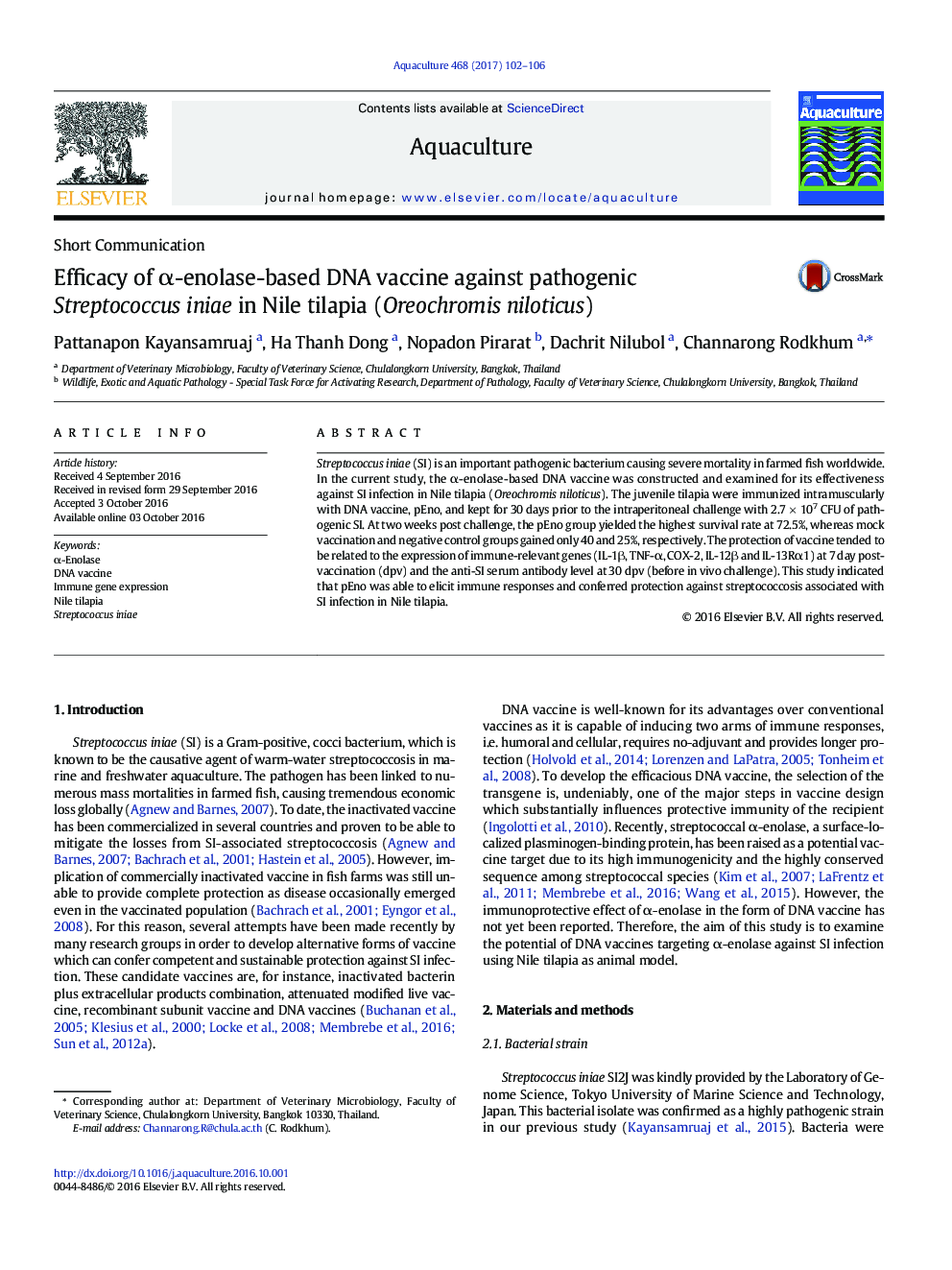| Article ID | Journal | Published Year | Pages | File Type |
|---|---|---|---|---|
| 5539430 | Aquaculture | 2017 | 5 Pages |
Abstract
Streptococcus iniae (SI) is an important pathogenic bacterium causing severe mortality in farmed fish worldwide. In the current study, the α-enolase-based DNA vaccine was constructed and examined for its effectiveness against SI infection in Nile tilapia (Oreochromis niloticus). The juvenile tilapia were immunized intramuscularly with DNA vaccine, pEno, and kept for 30 days prior to the intraperitoneal challenge with 2.7 Ã 107 CFU of pathogenic SI. At two weeks post challenge, the pEno group yielded the highest survival rate at 72.5%, whereas mock vaccination and negative control groups gained only 40 and 25%, respectively. The protection of vaccine tended to be related to the expression of immune-relevant genes (IL-1β, TNF-α, COX-2, IL-12β and IL-13Rα1) at 7 day post-vaccination (dpv) and the anti-SI serum antibody level at 30 dpv (before in vivo challenge). This study indicated that pEno was able to elicit immune responses and conferred protection against streptococcosis associated with SI infection in Nile tilapia.
Related Topics
Life Sciences
Agricultural and Biological Sciences
Aquatic Science
Authors
Pattanapon Kayansamruaj, Ha Thanh Dong, Nopadon Pirarat, Dachrit Nilubol, Channarong Rodkhum,
